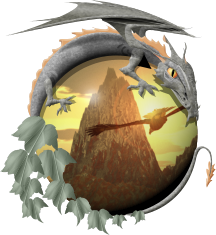- Cities and buildings
- Fields, plains and deserts
- Forests
- Hills and mountains
- Islands and promontories
- Lands, realms and regions
- Rivers and lakes
- Seas and oceans


 |
||||||
|


Which personality type are you?
Take the Free mydiscprofile Personality Test to discover your core personality and your ideal job.   Which personality type are you? |
|
The Fëanturi; a title given to the brothers Mandos and Lórien. Each of these dealt with the fëar, or spirits, of the Children of Eru. In life, Lórien spoke to the fëar in dreams, and possibly even brought them to Valinor during sleep.1 In death, Mandos summoned each fëa to the Halls of Waiting in the west of Valinor, to await their final fate. For Elves, after a time in the Halls, this would usually involve a sort of 'resurrection' (more specifically, a re-embodiment of the fëa). In some cases, though, the fëa was not permitted to return, and remained in Mandos' Halls until the end of Arda. The most famous of these disembodied fëar was that of Fëanor2 himself. The fate of the spirits of Men is shadowed in mystery, and even the Valar did not clearly understand it. From the Halls of Mandos, they left the world altogether, though their ultimate destiny was mysterious; besides Eru himself, only Manwë and Mandos knew anything of their final fate. Notes
See also...For acknowledgements and references, see the Disclaimer & Bibliography page. Original content © copyright Mark Fisher 1998, 2001, 2006-2007. All rights reserved. For conditions of reuse, see the Site FAQ. Website services kindly sponsored by myDISCprofile, the free online personality test.Take the FREE myDISCprofile personality test to discover your core personality and your ideal job. |